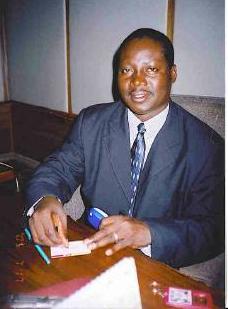Kenya: Oil Prices Remain High
25 February 2008
Samuel Otieno
Kisumu
Despite relative calm returning in most parts of the troubled hits western Region, fuel consumers in the area are still paying dearly for the products as pumps prices remain all time high.
While a litre of premium petrol costs an average of Ksh88 (US$1.2) in Nairobi, in Kisumu, Kakamega and Kisii, the figure has more than doubled to Ksh160 ($2.2).
| |
The three towns constitute part of Kenya's western region, a hotbed of violence arising from a political dispute over last year's elections.
Kerosene is now costs the same price as petrol at Ksh89 per litre ($1.2) in most outlets, despite normalcy returning in the transport sector.
The problem is attributed to the fact that most upcountry stations were vandalized and others set a ablaze during the month-long violence.
State-owned National Oil says three of its upcountry stations in Migori, sondu and Eldoret were vandalised thereby making it impossible for the company to supply the product to market satisfaction.
"The impact both in terms of damaged facilities and lost business is in the tune of Ksh30 million," said NOCK managing director, Mr. Mwendia Nyaga.
Pump owners in Kisumu say the hike in fuel prices which has now forced passengers to pay more than double fare, is due to scarce petroleum products as supply in the region was very slow.
Most stations in western Kenya had run out of cooking gas and kerosene by early last week, leaving consumers without supplies. Major towns in the region have also reported acute food shortages accompanied by price escalation.
Persistent shortage of petroleum products in the affected districts is said to be the result of reluctance by owners of tankers to get them back on the road fearing the wrath of protesters.
Kenya Pipeline Company (KPC) which supplies marketers from its upcountry depots said there was adequate stocks but reduced off take from depots in the three towns as tankers slowly trickled back to the road.
Triton Petroleum company which operates numerous retail stations in Eldoret, Nakuru and Kisumu had all its premises affected by the post election violence and loss estimated at 60%.
Three other petrol stations were also set a blaze in Kisumu making it impossible for the few available to quell the fuel thirsty region.
For the past month, Kenol Kobil, another oil firm, has imported crude oil to be processed at KPRL on behalf of the industry through the monthly Open Tender System (OTS) and through private importation of refine products.
The political crisis has particularly hit hard private operators that have been making inroads into western Kenya after their outlets were set on fire.
Mr. Mwendia Nyaga, the National Oil Corporation of Kenya managing director, told East African Business Week in a phone interview that normalcy had returned and that company's operations in western Kenya except in Migori where its retail outlet was vandalised.
"Two others have remained closed due to security concerns," he explained.
The escalation is looming as global prices of fuel per barrel increased to $100 per barrel by the weekend.Crude contract rose 4 cents to settle at $95.50 a barrel. Oil prices have risen by more than $8 in little more than a week.
The current pump prices are based on crude supplies purchased in mid-December when prices stood at an average of $87 per barrel, suggesting that the next load will come at a higher price.


No comments:
Post a Comment